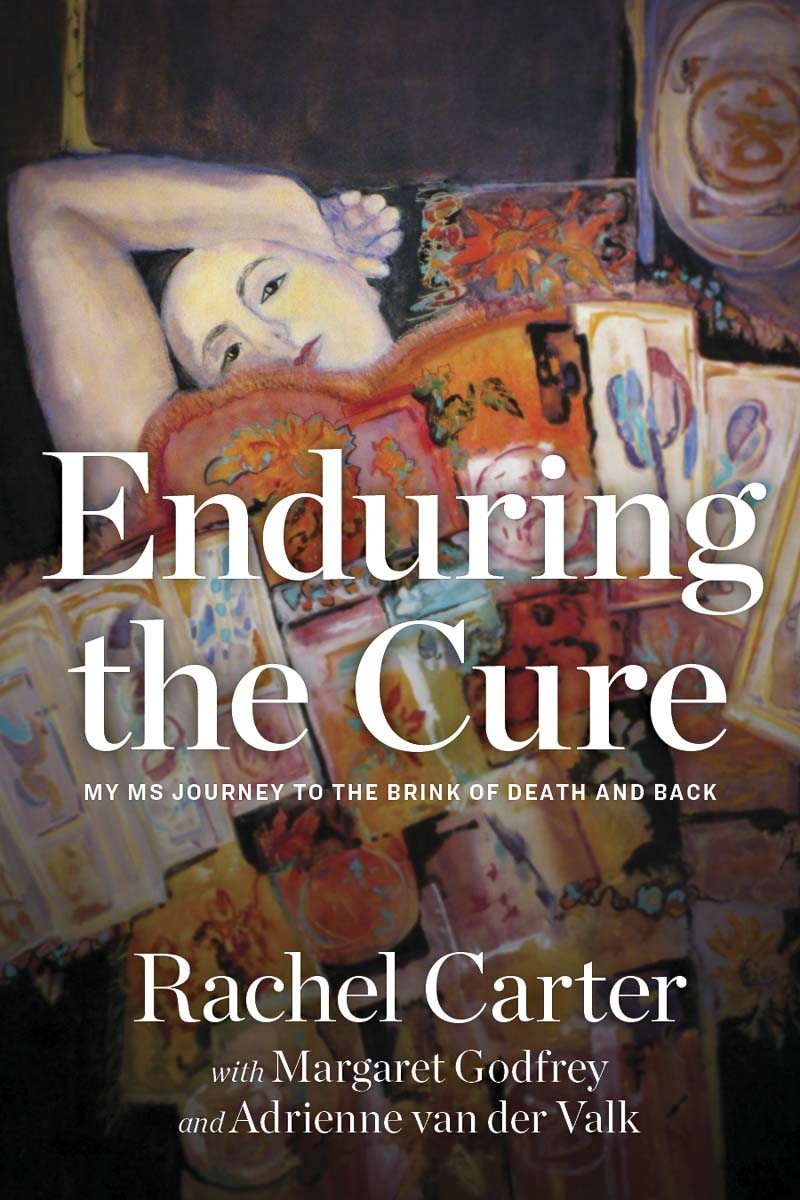Book launch to be held at Angst Gallery in Vancouver Sat., Oct. 12
RIDGEFIELD — Ridgefield resident Rachel Carter will discuss her new memoir about battling multiple sclerosis and pursuing an experimental stem cell transplant at a book launch from 3 to 6 p.m. Sat., Oct. 12 at Angst Gallery, 1015 Main St., Vancouver. Carter will read from her book and talk about her MS story. Books will be available for purchase and can be autographed.

“Enduring the Cure: My MS Journey to the Brink of Death and Back” will be released Oct. 1 by Illumify Media Global. The book’s cover art is by Carter’s mother, watercolor painter Margaret Godfrey. The book is available for $16.99 via Carter’s website, https://enduringthecure.com/ or from Amazon.

Throughout her teens and young adulthood, Carter lived fearlessly: driving to high school on her motorcycle and backpacking solo in Europe. But then she began having vision problems, and losing her balance and falling. It led to a devastating diagnosis: multiple sclerosis. Undeterred by the neurological illness, she charged forward into adulthood, becoming a successful career woman, a wife and mother of three children.
Even after her diagnosis, Carter continued running 20 to 30 miles a week. Then she ran her first half-marathon (13 miles), followed by five more half-marathons and two full marathons. With MS, it was difficult, but she did it.
“My body didn’t fail me until 12 years after being diagnosed,” Carter says. “Then it happened very quickly.”
Suddenly she could barely walk half a block. She needed a walker for mobility, or she’d have to stop to rest. Climbing the stairs to her office was laborious. Everyday life became exhausting. The pain was continual. Eventually, she had to stop working. She didn’t have the stamina to care for her own children, so had to send them to live with her parents. She rarely left her bed.
Carter’s doctors prescribed opioids, but her pain was so agonizing that the drugs only took the edge off her pain, which was debilitating and ever present. After two years of rapid decline, Carter found herself lying on the floor, writhing in agony and hoping to die.
Then she met a fellow MS patient, who told her about an experimental treatment called hematopoietic stem cell transplantation, or HSCT. As explained by the National MS Society, HSCT attempts to reboot the faulty immune system that has damaged the brain and spinal cord. Initially, her insurance carrier refused to cover the treatment.
Carter says “When I faced this groundbreaking treatment and all the accompanying risk factors, I had no other option. I was hardly living, so it didn’t matter if I died.”
Eventually, Carter underwent HSCT in Seattle. Although it successfully stopped the progression of her disease, multiple sclerosis already had damaged her brain and body. She says it was worth it to undergo the risky stem cell transplant.
Now Carter gets out of bed every morning. She can move easily most of the time. She can walk without a cane. She can care for her children and cook dinner for her family, but she’s no longer the athletic woman she once was. She knows she will never run another marathon. She may never have the stamina to work outside the home. When she’s tired, she still suffers brain fog and can focus on only one thought or task at a time.
But she faced death — and kicked it down the road. Carter says she wrote her memoir to give hope to anyone who has suffered a debilitating disease or diagnosis. It’s a story of pain, decline and an experimental treatment — but it’s also a story of inspiration, determination, healing and hope.
“I have changed as a person,” Carter says. “My faith is stronger. My compassion for myself and others has deepened. I am always grateful now, even in the face of hardship.”




